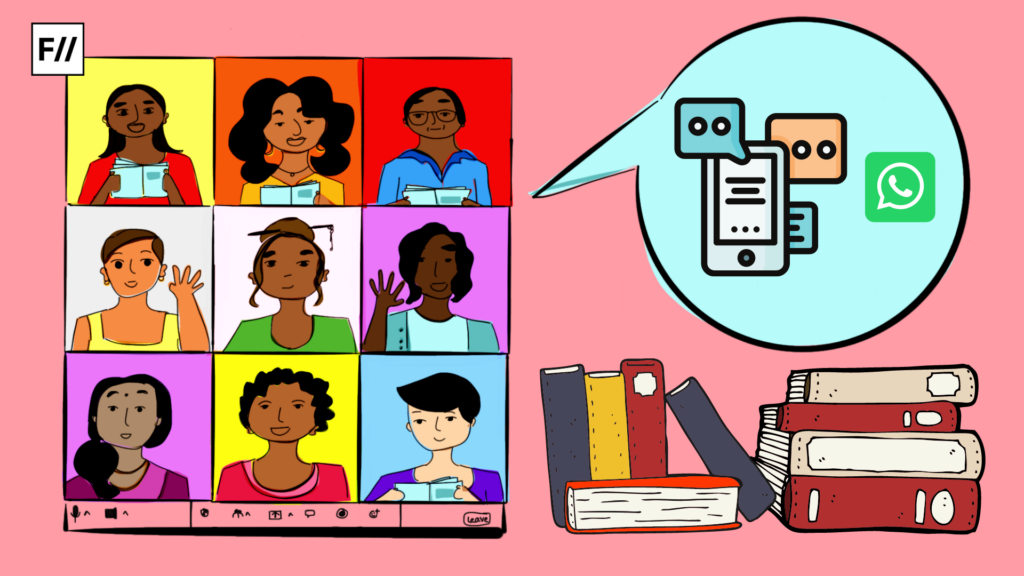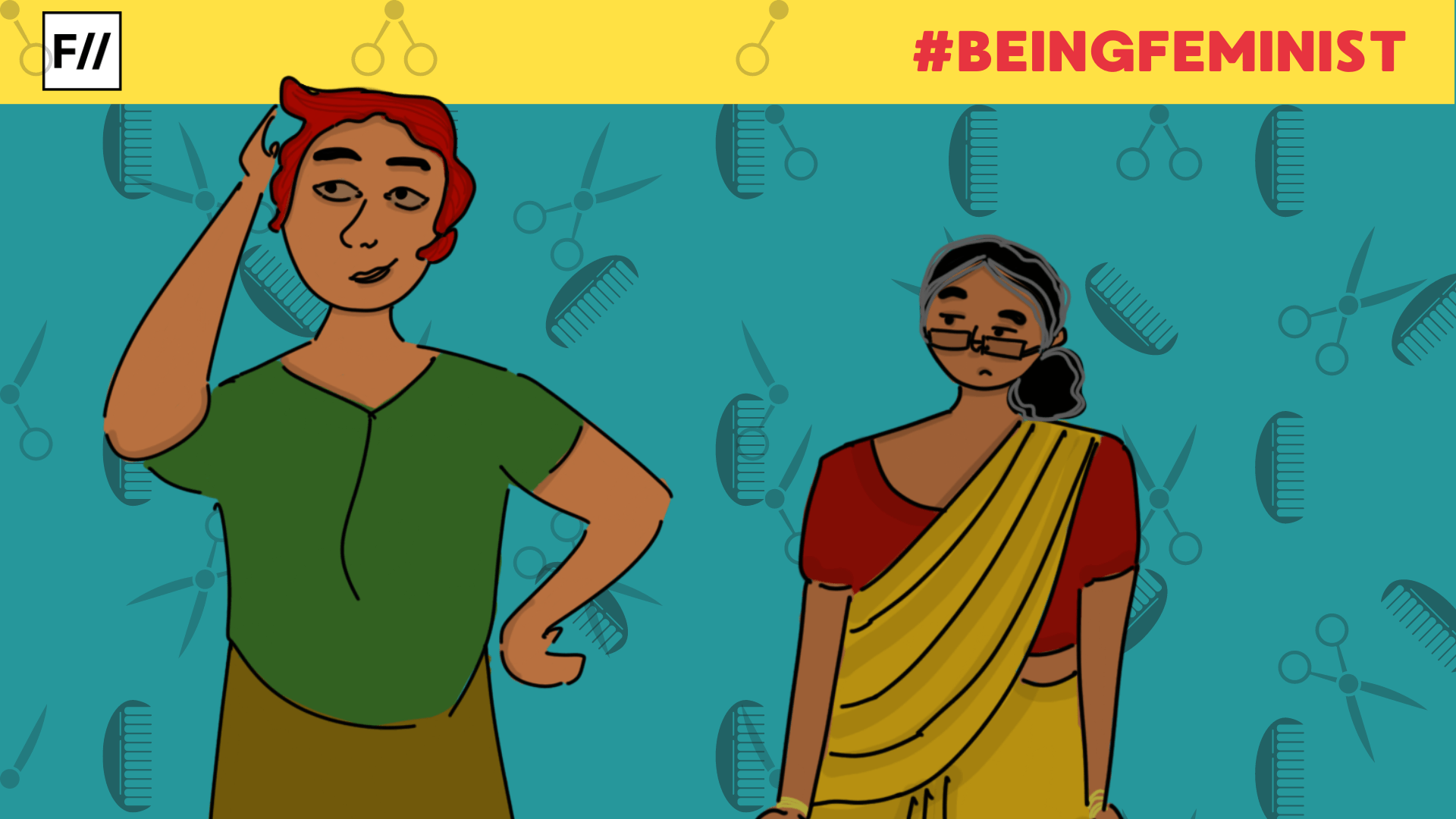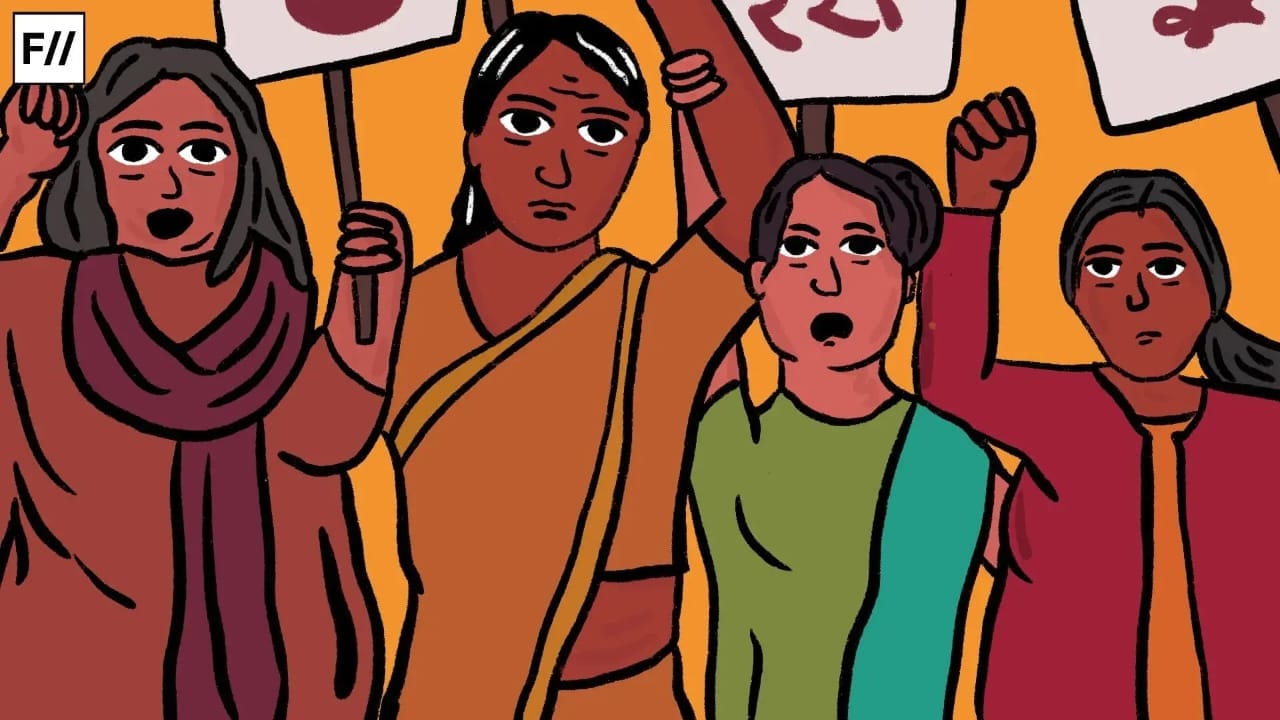Editorial Note: Being Feminist is a fortnightly column that features personal narratives documenting the emotions, vulnerabilities and innermost contradictions every feminist encounters while trying to push through various degrees of patriarchy in private, professional and public spaces.
Trigger Warning: Sexual abuse
There are many things that my mother and I disagree on. She is a first-generation rural-urban migrant. I was born in the city. Where we come from has shaped our perceptions of the world, and each other. My parents religiously sent all their children to attain higher studies, deeming education to be our saviour. But they didn’t quite realise what being exposed to the outer world would mean for their children.
My mother did try to protect us all. When my elder sisters were sent to tuition at the early age of 10, she accompanied them every day. She refused to leave them alone behind a closed door with a male teacher. My mother knew what evils roam in the outside world. She asked us not to step outside alone, or stay out late at night, or dress a certain way.
But I, her youngest child, grew up with the internet. My close friends were from the internet. After high school, I was introduced to spoken word poetry over YouTube and spent hours fangirling over the poets and their words. I found a niche space and circle to nurture my love for writing. The more people I met in the writing circles, the more I learned about art and activism.

It was around that time that I became obsessed with half-shaving my head. I had always maintained short hair for its ease and comfort. But this was something else. I vividly remember the day I plaited my hair and cut a side off, and then ran a razor haphazardly through the bald area.
I had not told my mother about it, being just a little dubious about her reaction. But that summer when I tied my hair to a pony, she noticed my undercut. “Why did you do it? Who told you to do it?” she kept screaming at me. My mother couldn’t believe that her daughter could produce such an outrageous thought all by herself.
The hairstyle was a start to something greater. Over time, I started writing and performing poetry. The stage terrified me every time, but I kept climbing on it. It also meant occasional late nights out and sleepovers with people my parents didn’t know. After a lot of questions and answers and with some financial independence I achieved, we have reached a place today, where I inform them about my plans extending more than a quick meet-up.
It is tricky to explain about rape culture and sexism to most people of the older generation, not just my mother. I have talked to enough men on the internet, and read enough comments and opinions about rape culture and consent, to get into the basics again and again. I often wonder – How hard can it be to understand? If a person at any point says no, then it is a no. It doesn’t matter if they are your partner or if they had consented 5 seconds ago
They tell me it would be good to avoid it but don’t meddle with my plans. My father’s reminder calls have progressively increased from 7 pm to 8 pm. If it gets later than that, he simply goes to bed, saving his anger for the morning.
A month ago, I had a sudden urge to colour my hair pink. I started scrolling through shades of pink and purple without thinking about my mother’s prickly criticism. One night when I finally showed her the bright pink colour I wanted, she turned her face away. My mother, who never let my sisters colour any shade lighter than brown because it draws “unnecessary” attention, didn’t stop me from colouring my hair pink. Surprisingly, she was the one who advised me on where to go for the colouring.

Recently, the internet almost broke over a harrowing story of a young Nepali girl who had been raped by an adult for 6 months when she was a minor. My mother was still unaware of the incident. So my sister and I sat her down and recounted everything to her. My mother’s sympathies for the survivor quickly turned into warnings of ‘see this is why we don’t let you stay outside‘. I smirked and looked away.
I have had enough arguments with my mother to know it is difficult to synthesise any argument with her, especially about issues ingrained in her patriarchal mindset. But my sister took more time and engaged with her with more patience. “She was a minor. So it doesn’t matter even if it was consensual.” But then why did she go to meet the man? After a deep breath, my sister answered, “When you’re a minor, you haven’t formed enough capacity to make rational choices. So, it is the adult’s responsibility.” Slowly my mother gave in to silence.
I think it is important to have some difficult conversations with our mothers and grandmothers not only for ourselves but also to learn more about their experiences, the roots of which run deep in the patriarchal mindset. We must converse to not only change their views but also make them understand that the scarring experiences they have carried all through their lives were never normal at all
It is tricky to explain about rape culture and sexism to most people of the older generation, not just my mother. I have talked to enough men on the internet, and read enough comments and opinions about rape culture and consent, to get into the basics again and again. I often wonder – How hard can it be to understand? If a person at any point says no, then it is a no. It doesn’t matter if they are your partners or if they had consented 5 seconds ago.
After the girl’s revelation, protests were organised to demand justice for the survivor. There is a call to remove the statute of limitations for rape which is one year in the case of Nepal. I go to protests for solidarity and when I look around, I see that the crowd is overwhelmingly comprised of youth.
When I scream slogans as part of the protest, my mind races to my mother. I wonder if these people too share their thoughts and opinions with their mothers. If not, what does it mean to constantly scream protests on the streets while thinking of what excuse to give at home?

After a few days, my mother caught up on the story through exposure to TikTok and YouTube. When I returned from the protest, my mother reported, “People are commenting so bad about the girl.” My mother has already formed her opinion before getting the news.
“It is all to make it sensational for views,” I replied.
“Is it so?” she mumbled as if already thinking about something else.
I think it is important to have some difficult conversations with our mothers and grandmothers not only for ourselves but also to learn more about their experiences, the roots of which run deep in the patriarchal mindset. We must converse to not only change their views but also make them understand that the scarring experiences they have carried all through their lives were never normal at all.
In some limited way, my parents now understand what I do and why it’s important for me. They are still scared of what can happen to me beyond the four walls of our home or in the shadows of the night. So, I try to assure them of my strength. When my father complains about my late night hangouts I ask him, “I picked up the phone. I told you I’m safe. Then why can’t I stay outside for long? What happens if we roam at night instead of the day?” Usually, he has no response to it.
Also read: Critiquing Sexist Practices In The Family: Keeping Quiet To Avoid ‘Conflict’ At Home
Featured Illustration: Ritika Banerjee for Feminism In India
About the author(s)
Shuvangi is an independent writer and researcher based in Kathmandu, Nepal




